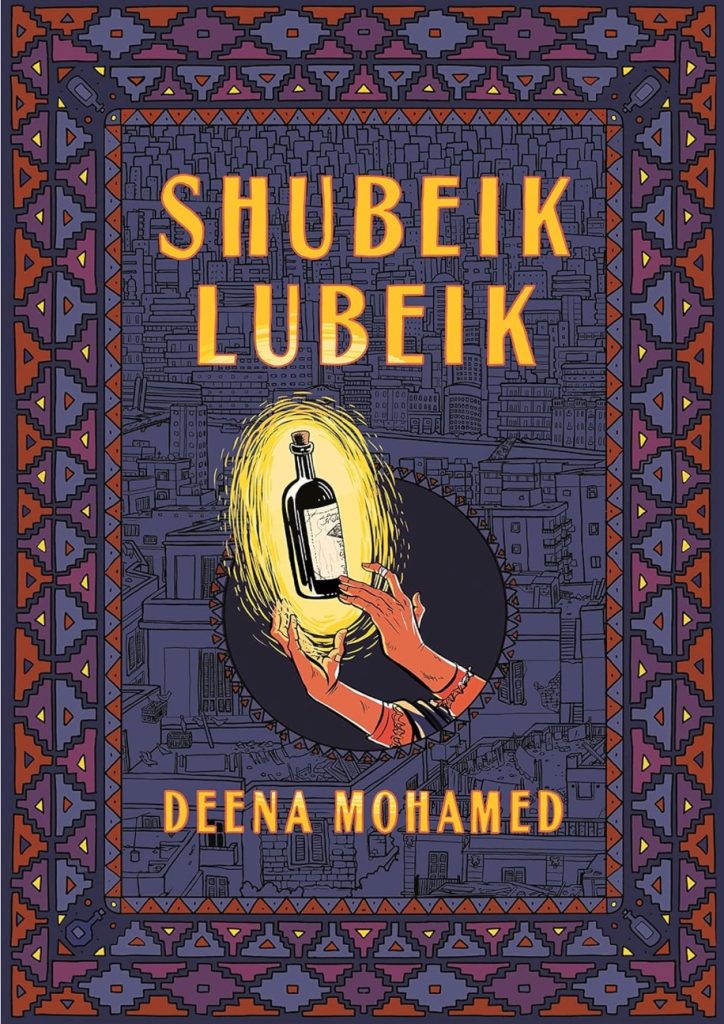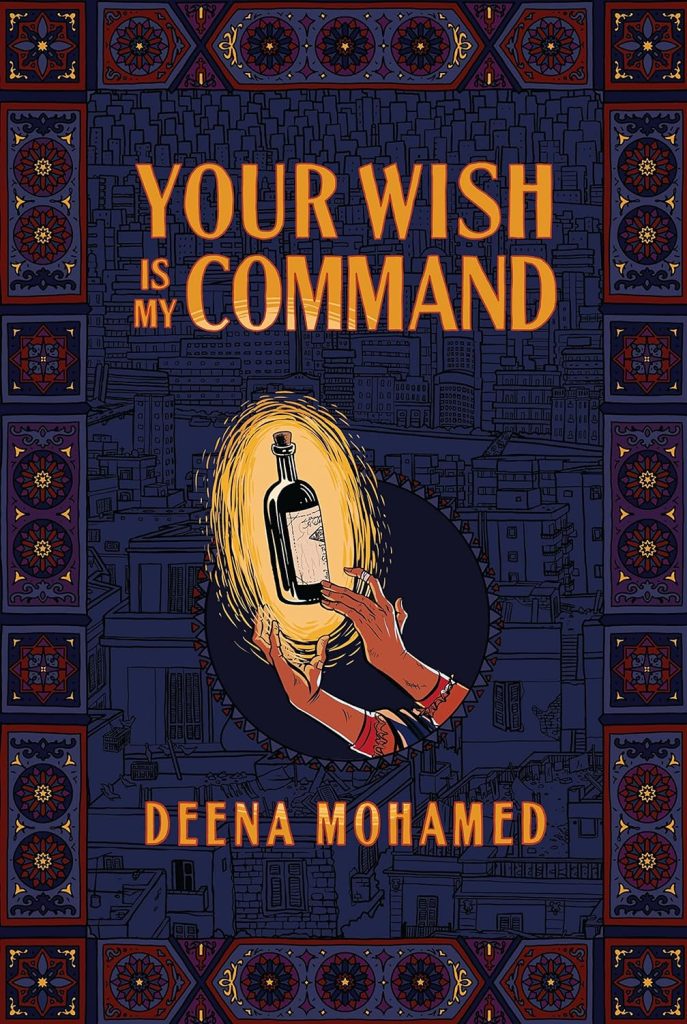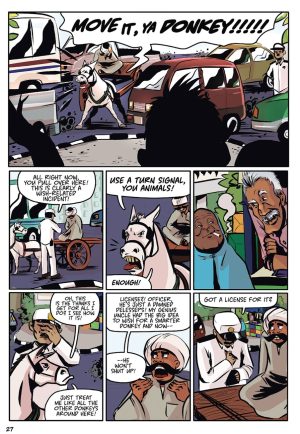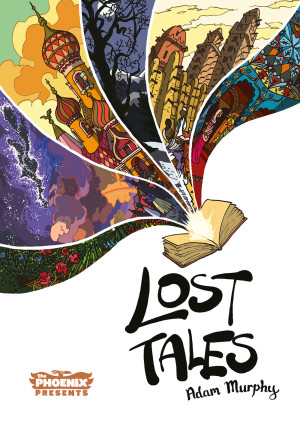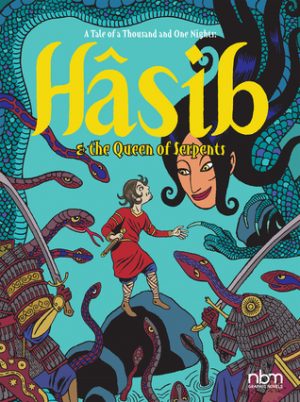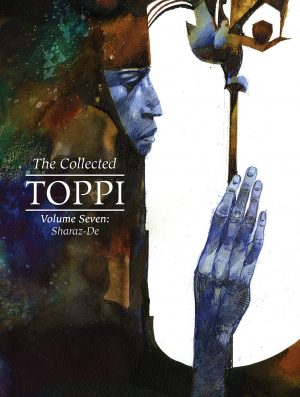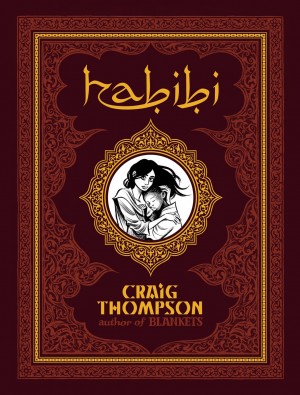Review by Colin Credle
Originally printed in Arabic, Deena Mohamed’s Shubeik Lubeik is an original graphic novel coming to us from Egypt and now available in English. It reads from right to left due to its original Arabic text.
The book is peppered with distinct, well explained colourful Egyptian slang and Arabic aphorisms, and the phrase “shubeik lubeik” means “your wish is my command,” the first phrase uttered by genies released from magical lamps in Arabic folktales. In Deena Mohamed’s Cairo, wishes are available for purchase. There are expensive licensed first-rate wishes and there are cheap, unlicensed more erratic third-rate wishes. There is the Ministry of Wishes, Registration, Supervision and Licensing. One can even major in “wish studies” at university.
At first glance, the premise of unlimited wishes seems too chaotic to pursue a well thought out story. However, Mohamed proves adept at defining reasonable, believable constraints, resulting in a very entertaining realm of play and unforeseen consequences. The Ministry broadcasts public awareness messages warning against third-rate unlicensed wishes. One victim wishes to lose weight only to lose both her arms. Wishing should not be taken lightly.
Three first-rate licensed wishes ended up at an unassuming street kiosk owned and run by pious, generous, humble Shokhry. The origin of these wishes falls back on nefarious colonial interlopers, greed, and exploitation, but this is a minor diversion. Shubeik Lubeik focuses on three women protagonists drawn to these three first-rate wishes: Nour, Aziza and the owner Shokhry.
In following their stories we learn about life in Egypt, witnessing first-hand teenage depression and the paralysing fear of regret. One character ends up being a Christian Coptic, when all assumed she was Muslim. Such unexpected turns and twists that are intimate, personable, relatable, and riveting in their originality.
Mohamed’s artwork and storytelling possesses humour and a great sense of timing, while her visual presentations cut to the heart of rather complex feelings. Aziza is poor and illiterate. When she is told how much the wish will cost, Mohamed illustrates the mountain of cash Aziza will have to build to buy her wish. Later, a teenager majoring in wish studies and from a very wealthy family thinks nothing of paying the asking price. For her, Mohamed draws a petite handful of cash, yet we know it’s the same amount. A single very powerful visual representation supplies the chasm between the rich and poor.
Wishes are used to enact fire breathing dragon pogroms against Christians. Mohamed does not hold back, keeping the story deeply invested in real tribulations of a society struggling with the persecution of minorities, crippling diseases in the absence of medicine and, in this case, insufficient access to wishes.
It may sound grim, but humour is well placed throughout as our heroes wrestle with making the morally correct choices. A donkey bestowed with intelligence results in entertaining sarcasm and commentary. One shortcoming is the repetition as Shokhry goes over the quandary of finding a home for the third wish over, and over and over again. Even Shokhry’s wife becomes a little tired of it, so the reader can be forgiven for wanting to move on. Although this is lamentable, it’s not enough to detract from an unusual, insightful, humorous journey through this world of wishes. As both author and illustrator, Mohamed has offered a moving, original work worth your time.
